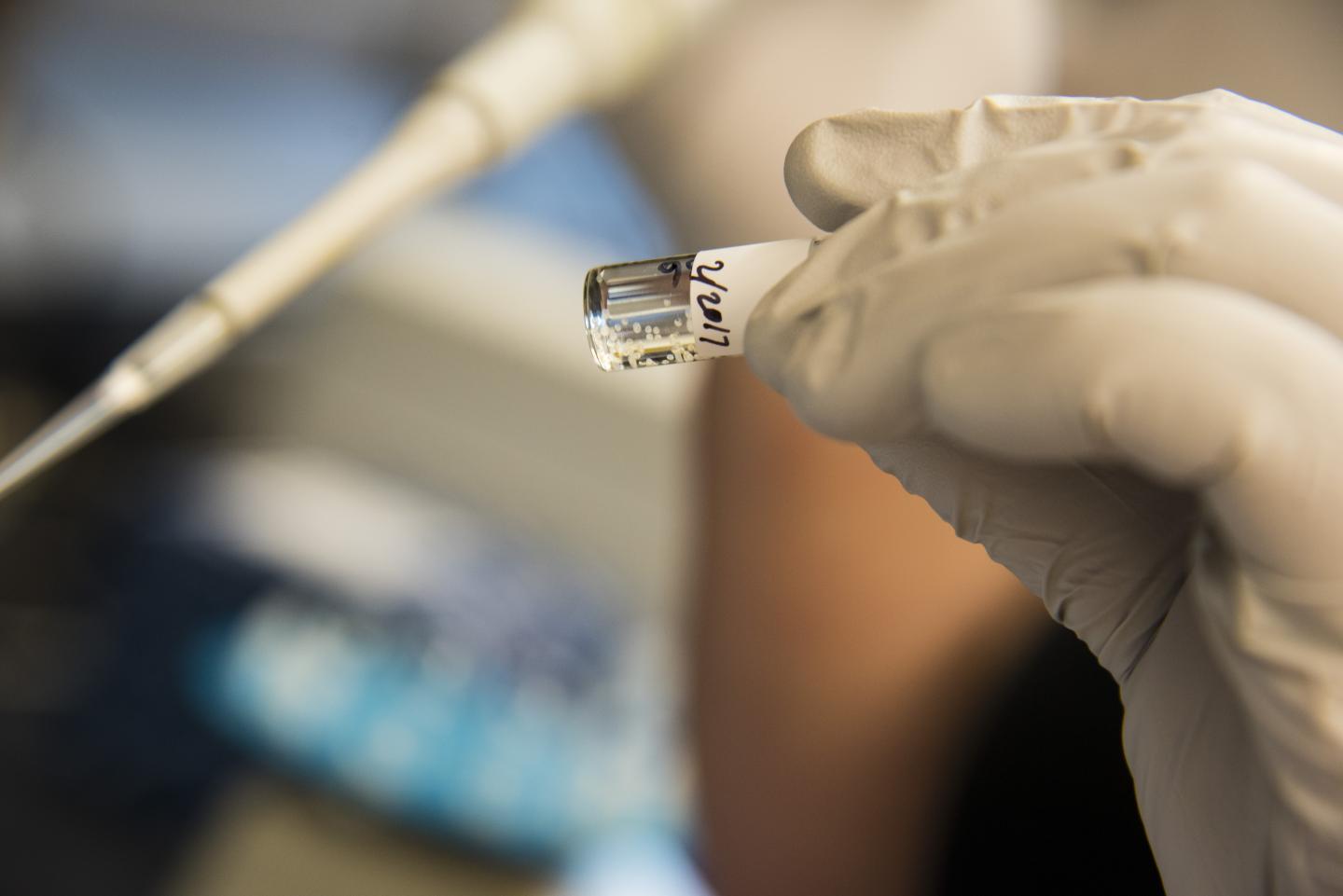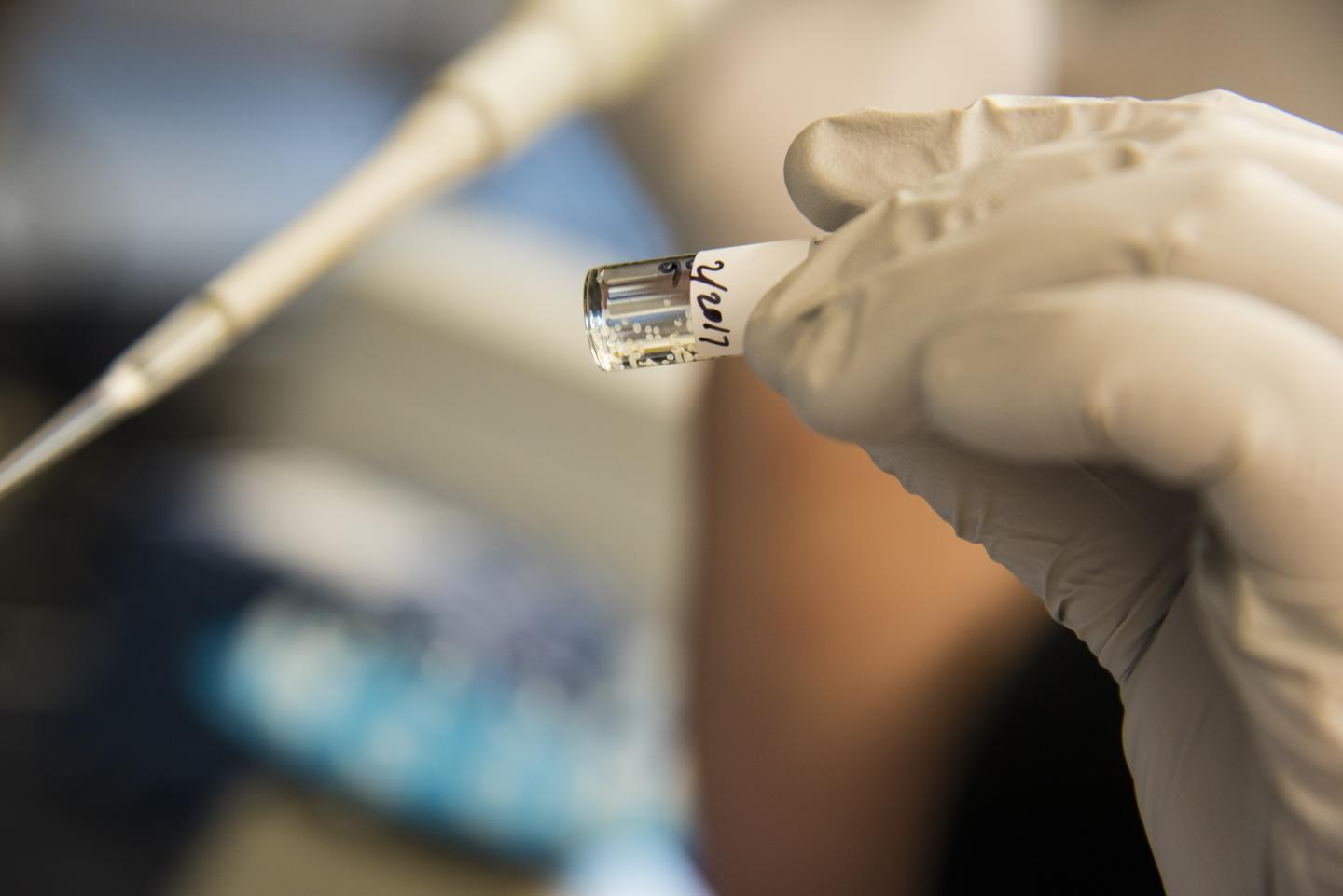
Credit: University of South Florida photographer Ryan Noone
ST. PETERSBURG, FL (April 19, 2017)- More than 30,000 fish species exist. But it's always been a guessing game on where they originate. A new technique developed by researchers at the University of South Florida College of Marine Science is paving the way in discovering where a wide-range of species spawn. It's a difficult task as 95% of fish in the world release their eggs into the water and drift away.
Marine biologists are gathering samples of hundreds of free-floating fish eggs in the Gulf of Mexico. They then extract DNA from each one and amplify and sequence a specific barcoding gene. That gene is then compared to a database, revealing the fish's identity. Previous studies have looked for eggs belonging to a specific fish species. This work is groundbreaking as it determines the complete composition of fish egg communities, which could contain more than a dozen species.
"This is pioneering work. They can be underneath everyone's noses for decades and no one would know it, they just get called fish eggs they have no idea what species they are," says co-lead investigator Ernst Peebles.
Since the fish eggs are only a few hours old, this technique allows researchers to assign spawning locations with certainty, as opposed to methods of looking for older larvae which could have been floating in the ocean for weeks or even months. Identifying spawning sites will enable better management and protection of critical habitats for economically and ecologically important fish species in the Gulf of Mexico.
This innovative research is a positive outcome from the tragic Deepwater Horizon oil spill. It's funded by the RESTORE Act, an acronym for Resources and Ecosystems Sustainability, Tourist Opportunities and Revived Economies of the Gulf Coast States. In addition to the 2-year pilot study, USF researchers are competing to win funds for an additional 15 years of monitoring and special studies.
The results could provide an essential baseline of fish spawning habitats in the Gulf of Mexico, which is critical knowledge should another disaster occur.
###
Media Contact
Tina Meketa
[email protected]
813-955-2593
http://www.hsc.usf.edu





